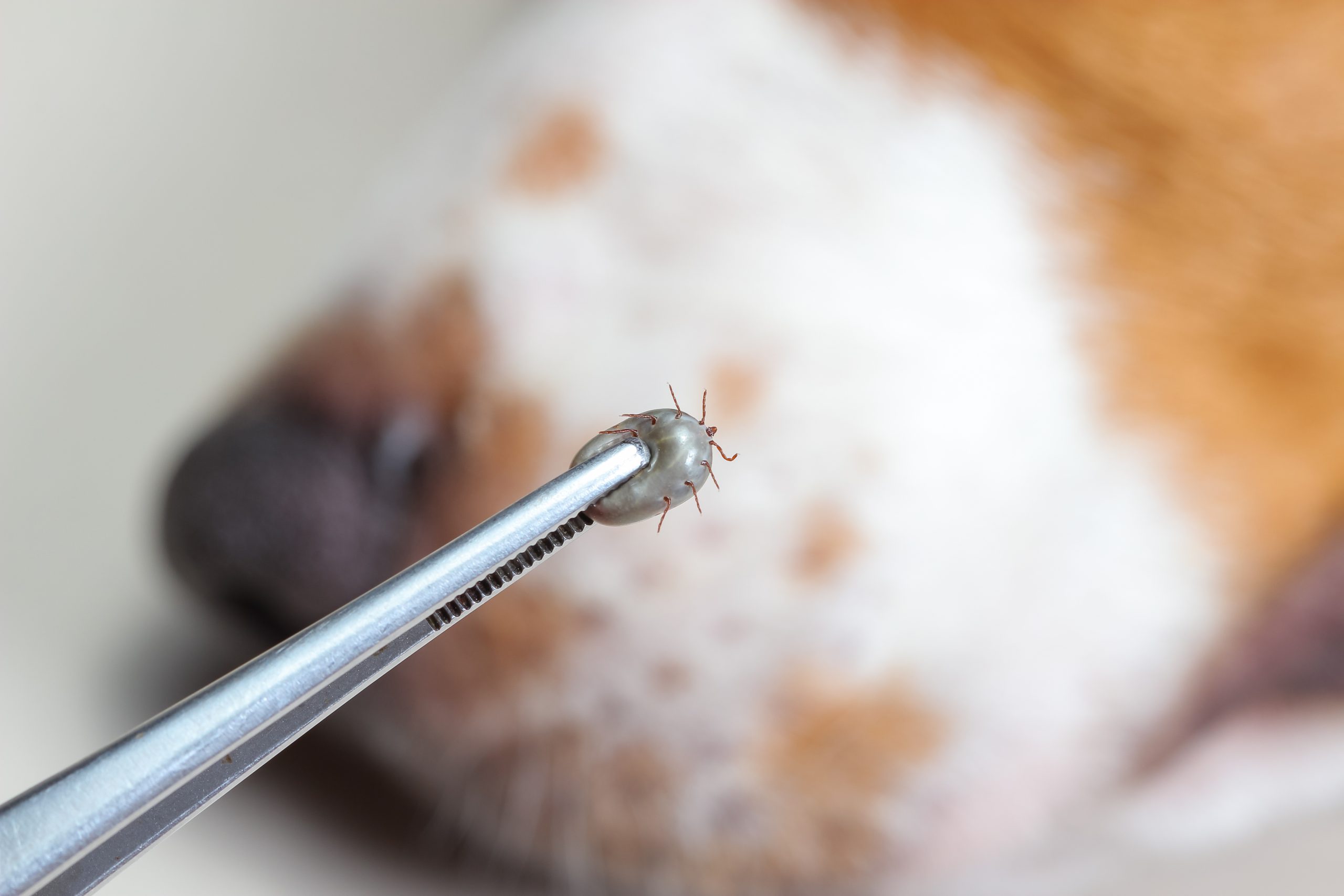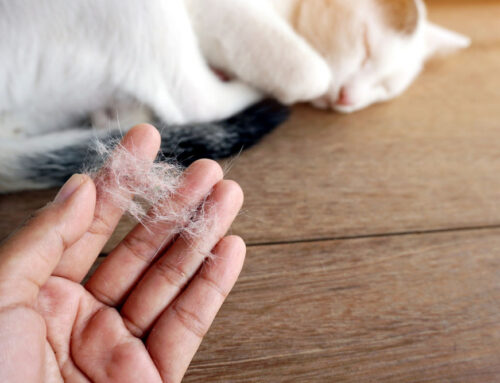Ticks are a year-round threat to pets in our warm, humid climate, because they not only cause local skin irritation when they bite, but they also can spread serious diseases to pets, livestock, and humans. Our Sixes Animal Hospital at BridgeMill team knows that ticks are the last thing you want to find on your pet, although sometimes it is unavoidable. Therefore, we want to ensure pet owners understand tick risks, how to mitigate those risks, and how to properly remove ticks they find on their pets.
Why ticks bite pets
Ticks are tiny, flat, fast-moving parasites that live free in our environment, unlike fleas or intestinal worms. They must feed on animal blood to molt (i.e., mature into their next life stage), so they hitch a ride on wildlife, humans, or pets, attach their mouthparts to the skin, and over several hours or days become engorged with their host’s blood. Most pet owners do not notice ticks on their pet—or themselves—until the parasite is engorged and more apparent.
Tick bite risks and complications for pets
Ticks may be tiny creatures, but they can cause big problems for your pet. Their bite is irritating, and typically a red bump appears at the site for several weeks. Some unlucky pets are allergic to tick bites and develop a local or widespread rash. Rarely, the bite becomes infected.
However, the real risks from ticks lie in the diseases they carry and can transmit to their hosts, including Lyme disease, ehrlichiosis, anaplasmosis, and Rocky Mountain spotted fever. Your pet can become infected as early as four to six hours after attachment, and you may see limping, lethargy, fever, swollen lymph nodes, bleeding disorders, or eye inflammation. While tick-borne disease is often treatable, some pets may experience severe or life-threatening signs.
Tick-borne disease cannot be spread directly from pets to humans, but your pet can bring home infected ticks that may bite a human family member and spread disease.

Tick prevention strategies
Preventing tick-borne disease and other tick bite complications starts with proper tick prevention strategies. Our tips to keep your pet tick-free include:
- Use an effective tick prevention medication regularly — Medications applied topically or given orally every one to three months effectively kill attached ticks. Some medications also have mild repellent properties to prevent ticks from biting in the first place.
- Use pet-safe repellants — Apply pet-specific natural insect repellents before outdoor adventures.
- Avoid wooded areas and tall grass — Keep your pet on a leash and stay on paved or mowed paths when walking in nature.
- Check your pet for ticks regularly — Your pet can pick up ticks anywhere, anytime, so always check them after being outside.
- Ask about tick-borne disease screening — Ask our team about adding a tick-borne disease screening test to your pet’s annual heartworm test.
How to properly remove ticks from your pet
If you find a tick during a regular check, you must properly remove the tick as soon as possible. While Lyme disease takes at least 24 hours to transmit, other diseases (e.g., ehrlichiosis) can be transmitted after only a few hours, so prompt removal is the best way to reduce tick disease transmission risks.
Many pet owners are unsure about the proper tick removal method. Follow these few steps:
- Use a pair of tweezers or a “tick twister” tool, which you can purchase for a few dollars, and follow the instructions. Wear disposable gloves.
- Grasp the tick’s head base as close to your pet’s skin as possible.
- Using firm, steady pressure, slowly pull the tick straight out from your pet’s skin, taking care not to leave mouthparts behind.
- Place the tick in a small bag or container with rubbing alcohol for future identification, if necessary. Do not crush the tick, which could expose you to disease.
- Never burn or otherwise harm an attached tick, which could worsen the risk of disease spread.
If you need help or a demonstration, our veterinary team is well-trained and skilled in tick removal.
Ticks make most people uneasy, for good reason—they can threaten your pet and your family’s health—but proper tick prevention strategies and medications that our Sixes Animal Hospital at BridgeMill team can prescribe will help prevent serious disease transmission and other complications.
Contact us to learn more about tick prevention, for help removing ticks from your pet, if your pet shows tick-borne disease signs, or to schedule a routine wellness visit and tick-borne disease screening.






Leave A Comment